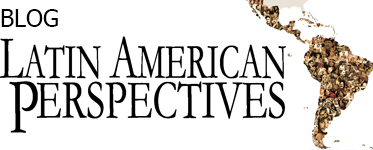Care is not essential
By Iván Sandoval-Cervantes | April 24, 2020 Assistant Professor Department of Anthropology University of Nevada, Las Vegas Although some news sources have highlighted the importance of differentiating between “physical distance” and “social distance”—emphasizing how “social distancing” might imply isolation, which is not good for mental wellbeing (https://www.aljazeera.com/news/2020/03/physical-distancing-social-distancing-200330143325112.html)—while “physical distancing” still allows us to be “alone, together”. The argument is that even when you cannot take care of someone physically, you can still show that you care about someone remotely. It is, of course, perfectly understandable that experts recommend physical distancing in order to slow down the spread of COVID-19. However, for some people the physical distancing and the restrictions of movement that it entails result in the impossibility of caring, in addition to being able to take care of someone. As we rely more and more on different forms of care to stay alive, and to stay healthy, we risk redefining what forms of care are permissible in a permanent way and without taking into account how different communities continue to see care and respect in physical ways that are seen as movements of contagion. This is particularly true in cultural contexts where the expectation is that care [...]


